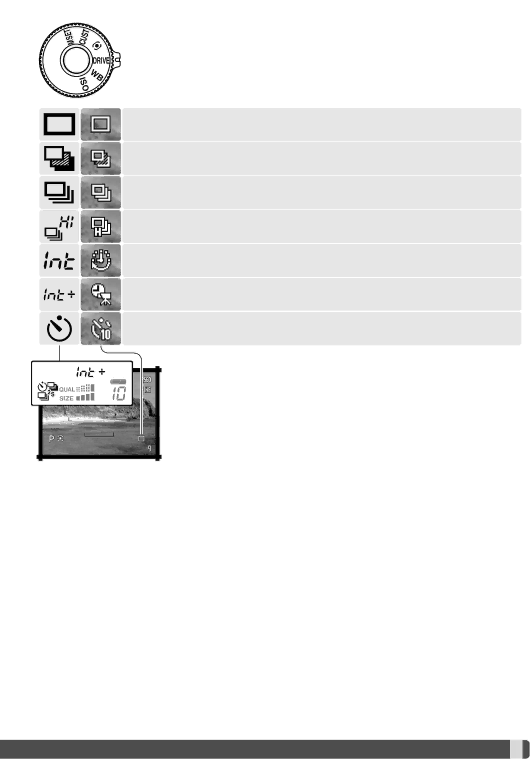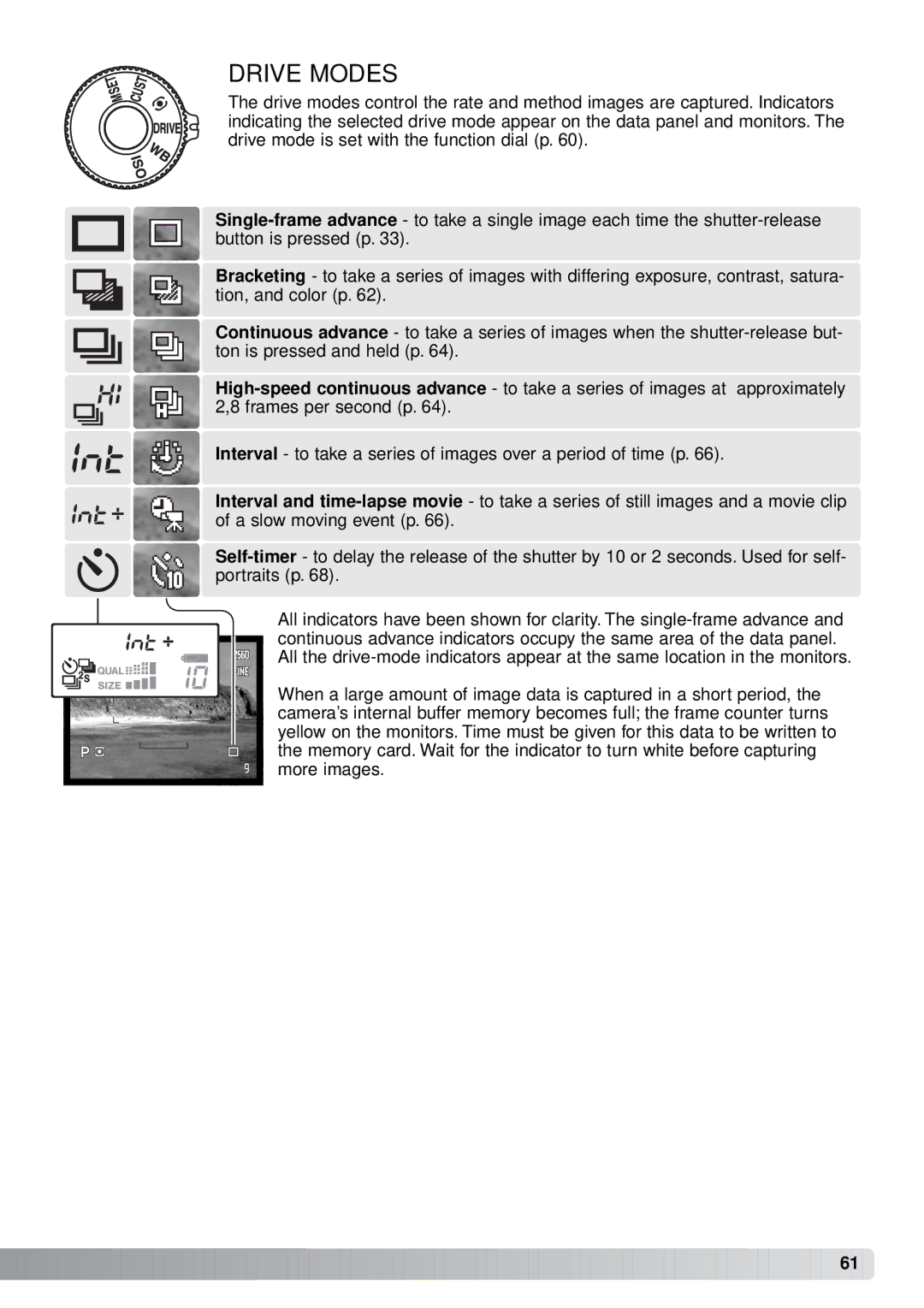
DRIVE MODES
The drive modes control the rate and method images are captured. Indicators indicating the selected drive mode appear on the data panel and monitors. The drive mode is set with the function dial (p. 60).
Bracketing - to take a series of images with differing exposure, contrast, satura- tion, and color (p. 62).
Continuous advance - to take a series of images when the
Interval - to take a series of images over a period of time (p. 66).
Interval and
All indicators have been shown for clarity. The
When a large amount of image data is captured in a short period, the camera’s internal buffer memory becomes full; the frame counter turns yellow on the monitors. Time must be given for this data to be written to the memory card. Wait for the indicator to turn white before capturing more images.
![]()
![]()
![]()
![]()
![]()
![]()
![]()
![]()
![]()
![]()
![]()
![]()
![]()
![]()
![]()
![]()
![]()
![]()
![]()
![]()
![]()
![]()
![]()
![]()
![]()
![]()
![]()
![]()
![]()
![]()
![]()
![]()
![]()
![]()
![]()
![]()
![]()
![]()
![]()
![]()
![]()
![]()
![]()
![]()
![]()
![]()
![]()
![]()
![]()
![]()
![]()
![]()
![]()
![]() 61
61 ![]()
